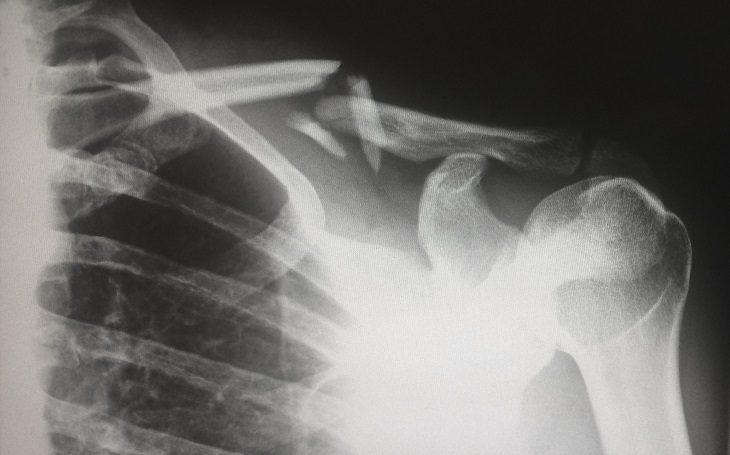The body needs a group of essential nutrients for it to work properly. These include minerals, trace elements, and vitamins. Vitamins, specifically, are needed to help with many different processes and to hinder the development of chronic illnesses. For example, vitamin D is essential for bone health because it aids in the absorption of calcium, another vital nutrient.
There are two types of vitamins: water-soluble and fat-soluble. Water-soluble vitamins dissolve quickly in water whereas fat-soluble vitamins need fat to be absorbed into the body. Both groups have different rates of absorption and storage capabilities. So which vitamins are fat soluble?
What is a fat-soluble vitamin?
Fat-soluble vitamins are nutrients that dissolve in fat and are stored in the tissues of the body. They are absorbed into fat globules and taken where they need to go when those fat globules make their way around the body through the small intestines. Since no two vitamins are alike, each fat-soluble vitamin gets stored in different places and for different lengths of time. Some stay in the fatty tissues, others in the liver; they can be stored between a few days up to six months.
Fat-soluble vitamins are kept in the body so that when it needs them, they can be used from its stores. They are best stored and absorbed into the body when they are taken with high-fat foods; however, they are not as easily excreted out of the body as water-soluble vitamins, so they can be absorbed with all meals.

What are the benefits of fat-soluble vitamins?
There are four different kinds of fat-soluble vitamins, all of which have their own benefits. Each and every fat-soluble vitamin plays a vital role in overall health, some even helping with a variety of different processes.
Retinol (Vitamin A)
Retinol, or vitamin A, is primarily used in the body for eye health, immune health, and bone health. Retinol is used to help convert light that enters the eye into electrical signals that are sent to the brain. Studies have found that the first symptom of a retinol deficiency is typically night-blindness.
Retinol also helps the immune system function by maintaining mucous barriers in areas such as the eyes, lungs, gut, and genitals to help ward off or trap bacteria and other pathogens. It also can help to protect bone health. Research has shown that those without adequate levels of retinol in their system have an increased risk of bone fractures.
Tocopherol (Vitamin E)
Tocopherol acts a powerful antioxidant which is crucial in overall health. Without adequate antioxidant levels to bind to free radicals, the body can accumulate dangerous levels of free radicals, leading to oxidative stress. Oxidative stress can then encourage chronic disease. By decreasing oxidative stress in the body, tocopherol can also enhance the life of your cells.
Ergocalciferol/Cholecalciferol (Vitamin D2 and Vitamin D3)
The sunshine vitamin has a variety of different health benefits. It encourages bone health by increasing the absorption of essential nutrients calcium and phosphorous, which are required for healthy bones. It also plays a vital role in immune function and can decrease the risk of developing illnesses such as the flu.
The vitamin is also a powerful mood regulator and studies have shown that it can help to ward off mood disorders such as depression and anxiety. Vitamin D deficiency has also been shown to bring about many health problems, so getting enough is of the utmost importance.
Phytonadione (Vitamin K)
Phytonadione plays a vital role in bone health, cognitive health, and heart health. When it comes to cognition, the nutrient has been shown to help boost memory in older adults. In terms of heart health, phytonadione is thought to decrease blood pressure because of its ability to lower mineralization that could build up in the arteries around the heart.
When should you take fat-soluble vitamins?
Since fat-soluble vitamins dissolve within the body using fat, the best time to take them is with a meal, usually in the evening. Saturated fats are the best type of fat to take these types of vitamins with because they increase the absorption rate and help the vitamins get to the fatty tissues and liver so they can be stored for future use.
Can you overdose on fat-soluble vitamins?
The risk of overdose is higher when it comes to fat-soluble vitamins than water-soluble vitamins, but only if you are taking much more than the recommended daily dose. This is because of their high storage abilities in the body. Toxicity levels will depend on the type of vitamin and how much was taken.
When it comes to retinol, for example, the symptoms of an overdose can include nausea, intracranial pressure, coma, and even death. The symptoms of having too much vitamin D in the system include weight loss, appetite loss, and irregular heartbeat. Having too much vitamin D has also been shown to cause organ damage because it raises the level of calcium in the blood.
Tocopherol taken in high doses can lead to stroke and interfere with the blood’s ability to clot. When it comes to phytonadione, the risk of overdose is low; however, it can still cause health problems if it is mixed with certain medications such as antibiotics or blood thinners.

Getting the right amount of fat-soluble vitamins is important for the overall health of the body. They are required for a variety of functions, and deficiencies can lead to the onset of a plethora of different chronic diseases. The important thing to remember when taking fat-soluble vitamins is to not go overboard. The body stores these vitamins, so unless you are severely deficient, you may risk taking too much if you go over the daily recommended amount.
Featured image by Candace Mathers on Unsplash